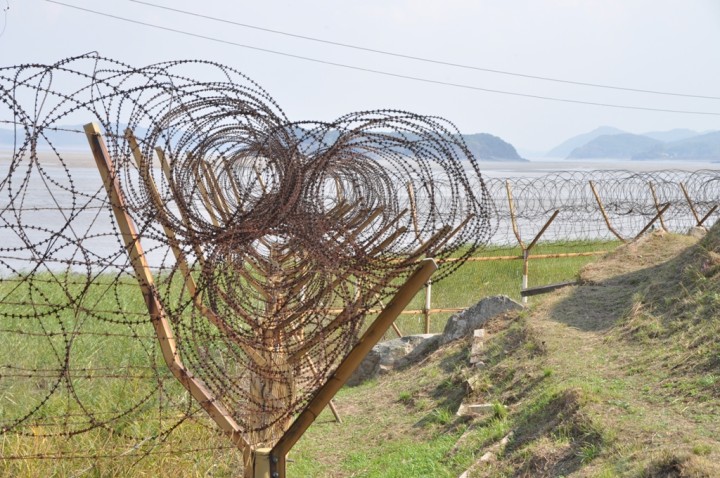By Gunnar Westberg, International Physicians for the Prevention of Nuclear War
Can Korea be reunited after almost 70 years of complete division between North and South? This is the dream of many in the older generation in both parts of the country. The younger people in South Korea do not seem to care so much about the North.
North Korea has a few nuclear weapons and may be producing a few each year. South Korea has a military alliance with the USA, including a “nuclear umbrella,” a pledge from the US to use nuclear weapons, if needed, to defend their ally.
During my two visits to DPRK, as North Korea is called, the officials we met called for a Korean Peninsula without nuclear weapons. Are they serious? Well, only serious negotiations can give us the answer.
At a side event during the 2015 NPT Review Conference, currently taking place at the UN in New York, two cooperating NGOs from South Korea (ROK, Republic of Korea) presented their proposals. DPRK has for decades asked for a peace agreement. The Korean war ended with a cease-fire and an armistice with the 38th parallel as a Demarcation Line, but no peace. There is still a state of war between the USA and North Korea, and the US has consistently refused to enter into peace negotiations. Some governments of the ROK have shown an interest in peace negotiations, others have been more reluctant.
At this event, we were told that the present government had expressed interest in peace negotiations but the US had said no. Why does the US not want a peace agreement? One reason could be that the US wants to maintain a strong presence on the Korean peninsula, more to impress China than DPRK. There are 38,000 US soldiers in ROK. Very heavy military exercises are held frequently, often provocatively close to the DPRK border. A cynical explanation is that the US is running out of enemies, and needs DPRK as a pretext for its enormous military system.
The Koreans present at the event, however, all of them, of course, from the South, felt that there may now be another chance for an opening. The nuclear weapons in the North may make it necessary for the USA to discuss the need to negotiate. The stalled six-nation talks may resume. In the early 1990s, negotiations with ex-president Jimmy Carter on the US side resulted in a “framework,” which included a stop in the DPRK nuclear program, with US aid as a carrot. DPRK dismantled the reactor that produced plutonium for nuclear weapons. Unfortunately, this agreement was broken after a few years. Both partners can be blamed for the failure.
Again, there may be a chance that DPRK is given rice, oil and – best idea – farming equipment and fertilizer as reward for destroying their new facility for enrichment of uranium. That would be good for the sometimes-starving population in the North, and it would be good for peace. It would not necessarily cost the US anything if some soldiers and military equipment are withdrawn.
But would there be reunification, as the Korean participants in the seminar hoped? Not in the foreseeable future, in my opinion. China and Japan do not want a strong reunited Korea, and the USA does not want to abandon its bases, placed so conveniently close to what it considers the real threat, China.
On my first visit to DPRK, almost ten years ago, a medical student from Leipzig in our group, who had lived in the divided Germany and experienced that country’s reunification, spoke to a large auditorium. There was a strong public response when she expressed her empathy with the divided Korean people. The dream is probably much stronger in the north than in the south.
The dream lives.










